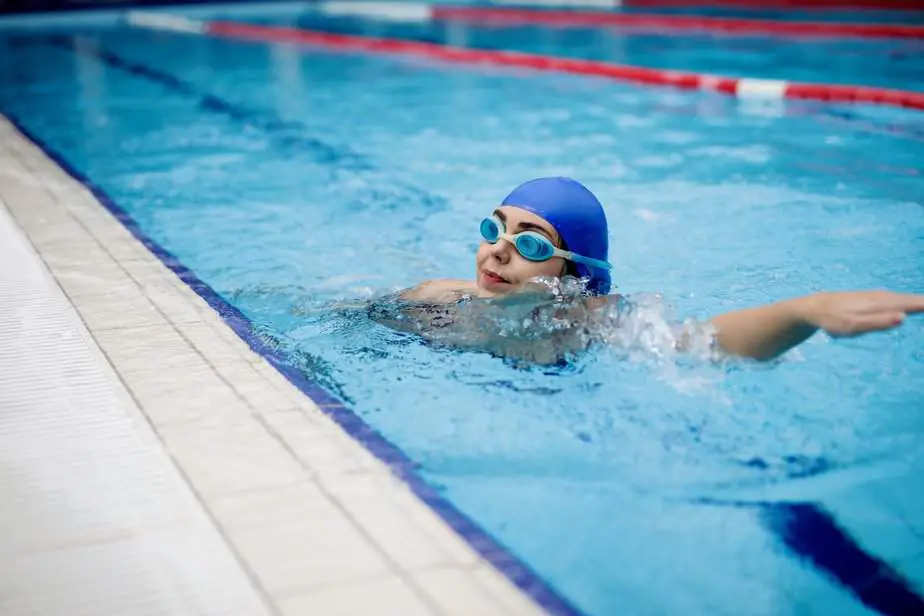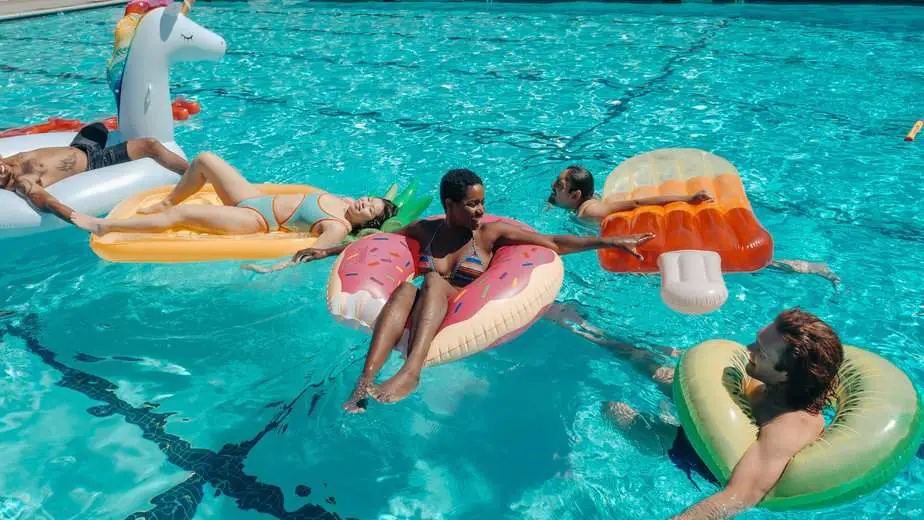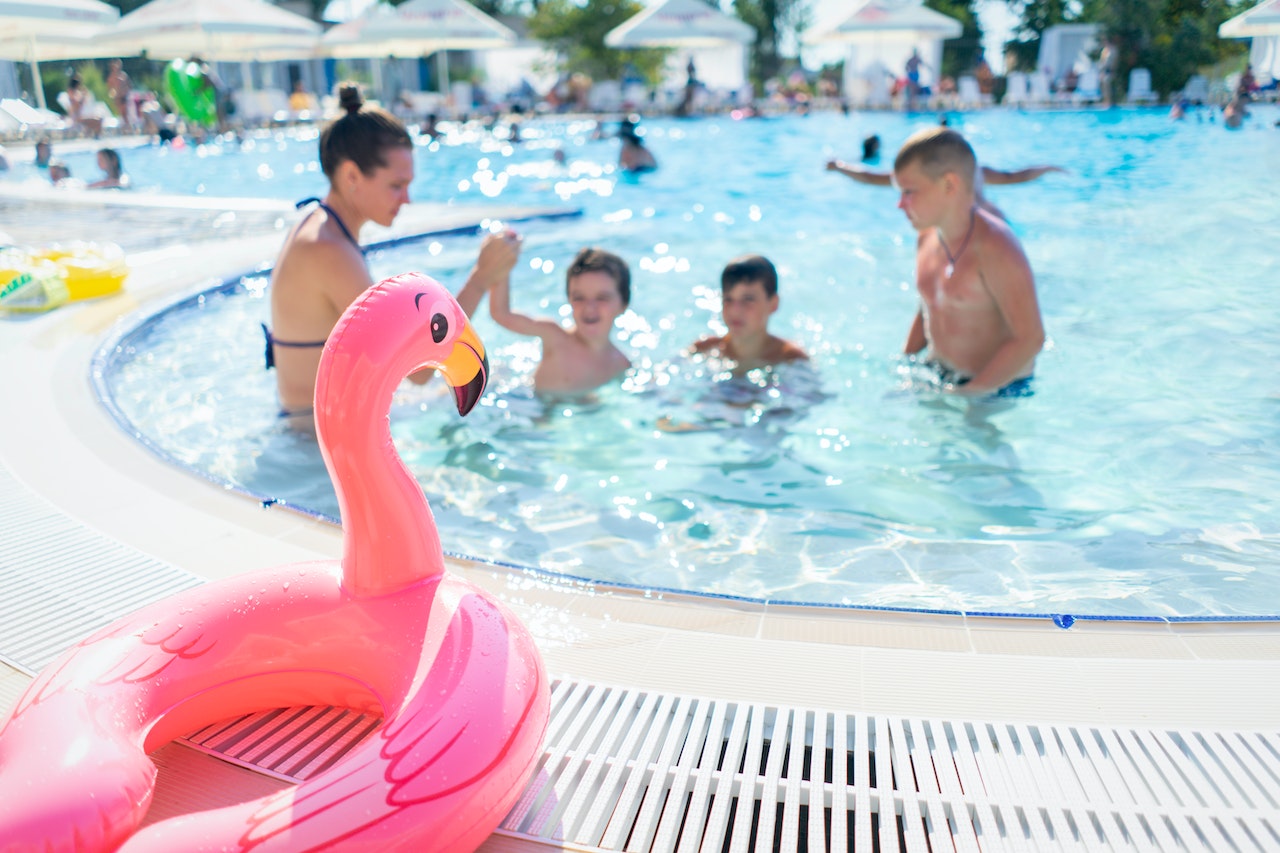Many people already know about the physical benefits that swimming provides, but an underrated aspect of swimming is how it benefits you socially.
With the world still reeling from the damage COVID-19 has done and parts of it are still in lock-down, human interaction has never been so sorely needed. In North America, most of the lock-down restrictions have been lifted, but for some people, two years of isolation have done a number on their social skills.
The people most affected by the global pandemic are not adults, but rather children, who had two years of their childhood stolen from them and possibly stunted their social development. At this young and tender age where they are acquiring crucial social skills, who knows what kind of far-reaching affects it may have in their life.
The need to return to social activities and engage in human interaction is greater than ever, both for adults and children, but especially for younger kids. Swimming can help bridge this gap, as it is a sport that helps them grow not just physically but socially as well.
By participating in swimming lessons, children will not only learn life-saving water skills, but they can also boost their confidence, stay active, and interact with other kids their age. It’s never too early (or late) to start, as these benefits can be reaped any time, but it is certainly more effective at a younger age.
If you are unsure of how exactly swimming provides these social benefits and why they are so crucial to not just children, but to adults as well, then keep reading on so we can address this point in more detail.
Social benefits of swimming
(Re-)establish the human connection

I think we can all agree that nothing is a satisfactory substitute for human interaction. You can try to fill this void with social media, TV, pets, chatting online, online schooling, working online, or various other things that seem to satisfy this need, but they all ring hollow compared to the real thing.
We are social creatures and the desire to connect with others is just human nature. Taking away this connection (as the global pandemic has done) is damaging to our mental health and can lead to depression, anxiety, and higher suicide rates.
Now, how does swimming solve this critical issue? Why learn how to swim over any other sport? The reason is that knowing how to swim is a life-saving skill and it drastically reduces the chances of drowning, especially for children aged 1-4 years old.
If kids take group swimming lessons at least once a week over several years, in addition to helping them stay fit, they can begin to form friendships with other kids, as well as learn how to speak to an authority figure (the instructor) and get used to face to face communication.
By enrolling in swimming lessons, children are learning social skills, using up their abundance of energy in a healthy way, and learning an essential life-saving skill that may literally save their life one day.
Boost your confidence

People who don’t know how to swim have found that it puts a strain on their friendships. They found it awkward whenever they were invited to the beach, pool, or any other activity that involved being in the water; they would either politely decline or be forced to sit on the sidelines as they watched their other friends having fun in the sun.
Eventually their friends would simply stop asking them, and they find out later that their friends organized a beach trip or lake trip without them simply because it’s just too much of a hassle trying to accommodate that one one friend who is holding everyone back.
Knowing how to swim at an early age will help boost confidence tremendously and avoid situations like the ones described above. Swimming improves hand-eye coordination as kids are forced to be very precise with their movements to help move through the water seamlessly. As they progress in skill, they feel a sense of accomplishment with each successful task completed.
As they grow older, group swimming lessons may evolve into joining a swim team and being part of a close-knit group. As part of a team that depends on one another, their relationship building is taken to the next level. Children learn how to be responsible for being a good teammate, setting and meeting goals, and how to be disciplined with themselves.
Even if your child doesn’t join a swim team, or perhaps you are a non-swimming adult who is curious about the social benefits of swimming, then swimming lessons can at least make you more confident with regards to going out near bodies of water. If you’ve ever wanted to go jet-skiing, surfing, paddle boarding, kayaking, swimming at the beach, and so on, knowing how to swim opens up these new opportunities that you would otherwise shy away from.
Join (or build) a thriving community

Swimming is for everyone, and adults can benefit socially from swimming as well. For the most engaged swimmers, they can go to their local recreation center and meet with regulars. Or they can visit different swimming pools and meet like-minded people.
Swimming is part of the culture in high-income countries like North America, Europe, and Oceania, with most adults reporting that they know how to swim. The more competent a swimmer you are, the more places you can visit in your own country or elsewhere.
Some of the most exotic locations in the world are only accessible on boat tours and only if you know how to swim. If you want to vacation in a tropical paradise like the Bahamas, in addition to swimming, you can participate in surfing, snorkeling, scuba diving and so on. While engaging in these activities, you could meet and befriend like-minded tourists who are also enjoying life at a tropical paradise.
With strong swimming skills, you can also join various water sport communities since swimming is a basic prerequisite. So many social opportunities are opened up if you know how to swim. The world is your oyster, so go out and enjoy the recreational and social activities you are free to do thanks to your swimming competency.


